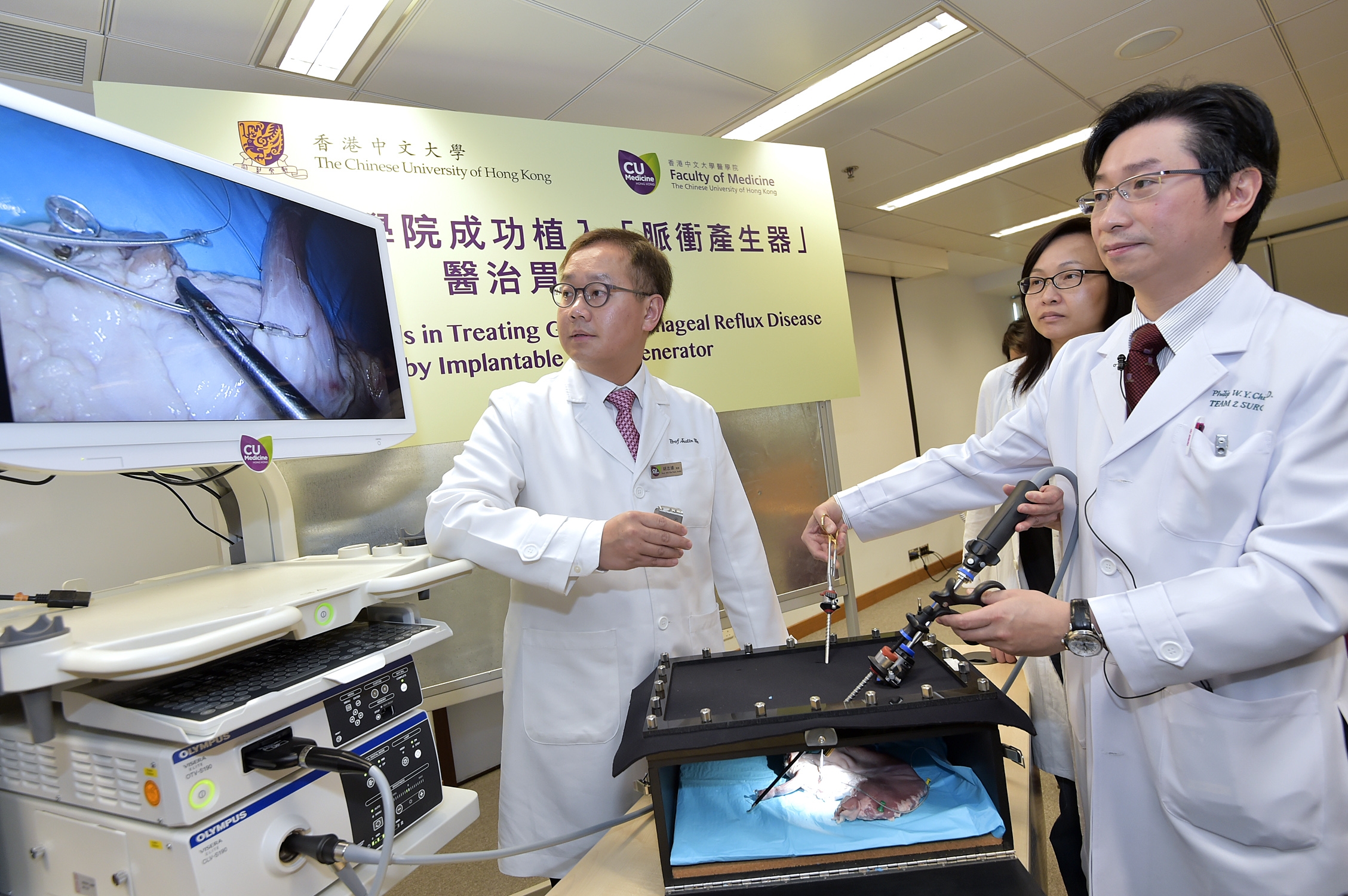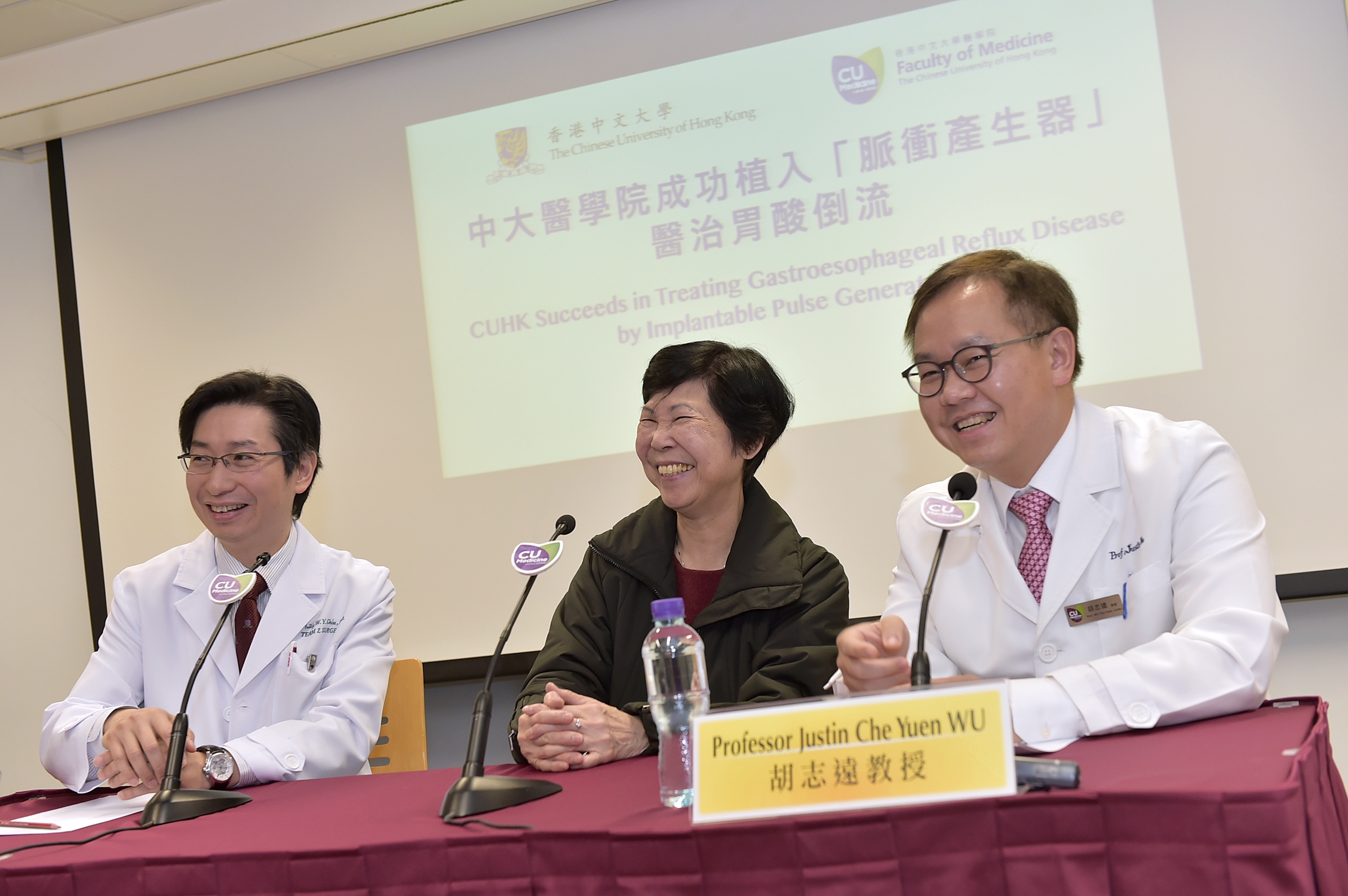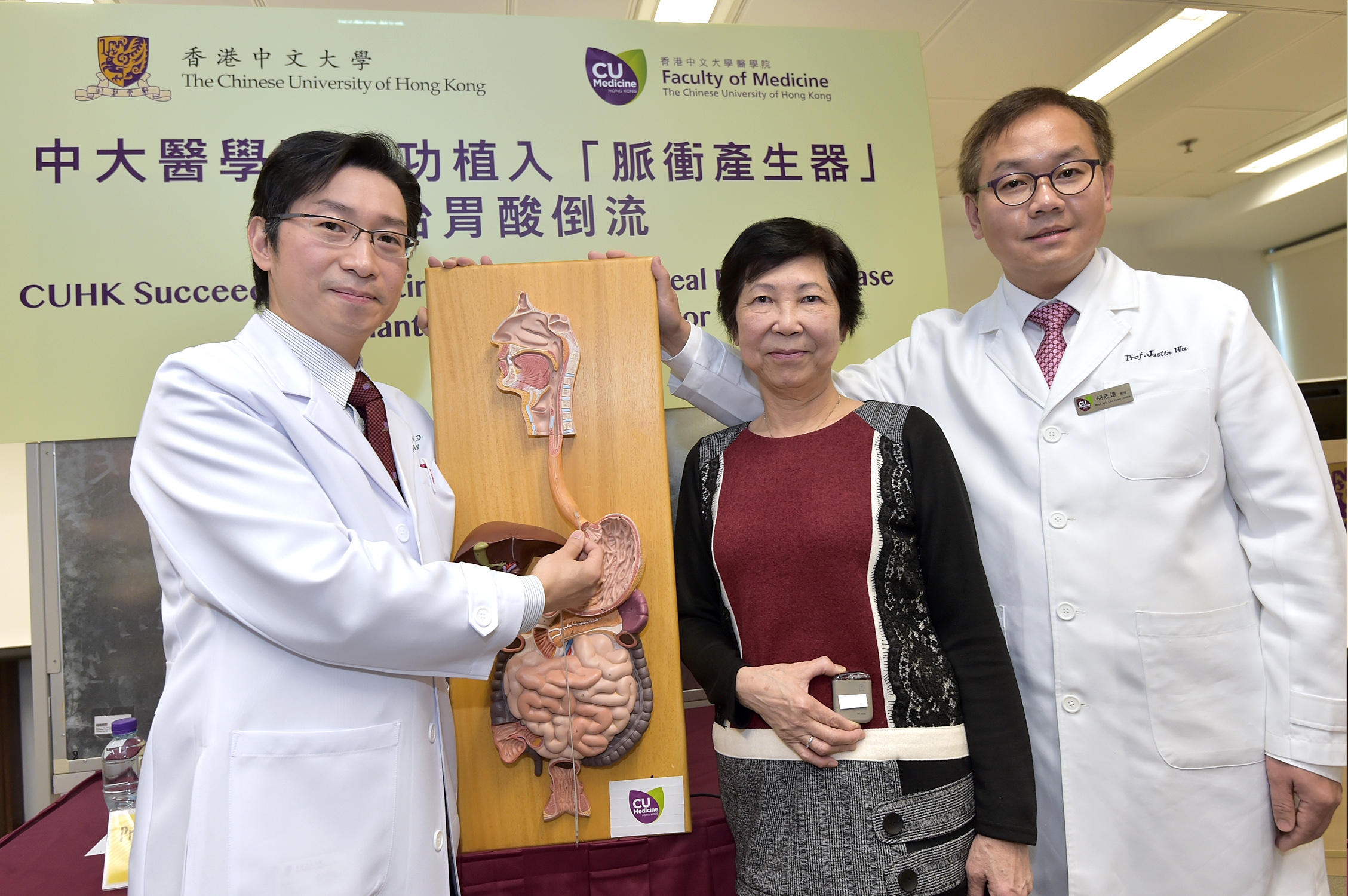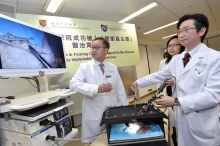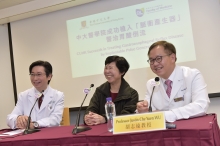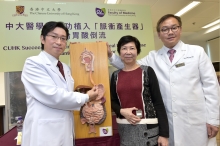CUHK
News Centre
CUHK Succeeds in Treating Gastroesophageal Reflux Disease by Implantable Pulse Generator
Gastroesophageal Reflux Disease (GERD) is caused by a failure of the lower esophageal sphincter (LES). Over 80% of patients require lifelong medication to help relieve the symptoms and mitigate the influence on their daily lives. During 2012-2013, The Faculty of Medicine at The Chinese University of Hong Kong (CUHK) successfully implanted pulse generators in 5 patients to restore their LES function, providing a novel treatment option to patients suffering from GERD.
Lower esophageal sphincter is a valve between the esophagus and stomach which opens when food and liquid pass from the esophagus into the stomach. When the LES is not functioning properly, gastric contents, including acid, can flow backwards into the esophagus, causing symptoms such as heartburn and regurgitation.
About 5-10% of the local population experiences acid reflux symptoms weekly, which may be caused by obesity, poor dietary habits, emotions and stress. In severe cases, the patients may have a number of complications such as erosive esophagitis, esophageal ulcers, strictures, and Barrett’s metaplasia. Since lying down may aggravate GERD, the sleep of some patients may also be disrupted.
CUHK is the Asian pioneer in introducing the implantable pulse generator (IPG) for GERD patients. The 6.5cm long IPG, implanted in the patient’s abdomen and connected to LES by electrode leads, will automatically deliver electrical stimulation to restore the function of LES. The 5 GERD patients with IPG implanted will be followed up for 2 years after the surgery and so far their reflux symptoms such as heartburn and regurgitation were found to have been significantly reduced. They no longer need to take the daily GERD medication.
Professor CHIU Wai Yan, Philip, Assistant Dean (External Affairs) of CUHK Faculty of Medicine and Director of the CUHK Jockey Club Minimally Invasive Surgical Skills Centre, said, “Medication may not work for some GERD patients and therefore surgical treatment is an alternative for patients with severe symptoms. In our research, it appears that the innovative technology is highly effective in controlling symptoms of GERD, while avoiding some of the complications arisen from conventional laparoscopic fundoplication, such as difficulty in swallowing.”
Dietary and lifestyle modifications can also help relieve mild cases of heartburn or reflux. Professor WU Che Yuen, Justin, Associate Dean (Development) of CUHK Faculty of Medicine and Director of the S.H. Ho Centre for Digestive Health, said, “Acid reflux is seen more often at festive seasons when people are less cautious on eating. It is suggested not to eat too much or too fast, and not to sleep within 2 hours of eating. Fatty or spicy food should also be avoided to help alleviate the condition.”
For those who would like to learn more about GERD, please visit the website of S.H. Ho Centre for Digestive Health (www.digestivehealth.org.hk) or call its enquiry hotline at 2632 4316.
Professor CHIU Wai Yan Philip (right), Assistant Dean (External Affairs) of CUHK Faculty of Medicine and Director of the CUHK Jockey Club Minimally Invasive Surgical Skills Centre, and Professor WU Che Yuen Justin (left), Associate Dean (Development) of CUHK Faculty of Medicine and Director of the S.H. Ho Centre for Digestive Health, demonstrate the minimally invasive procedure to implant pulse generator.
After the implant surgery in 2013, Ms Lee’s (middle) GERD symptoms have been significantly reduced, enabling her to live and sleep normally without being affected by the disease.


